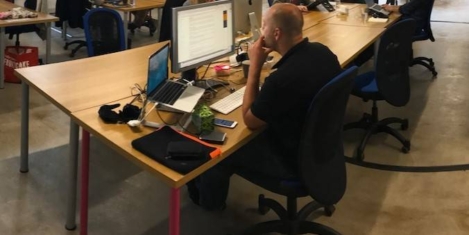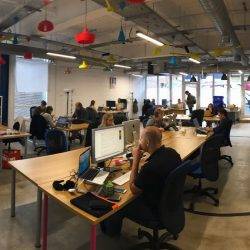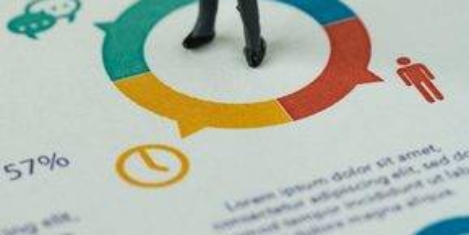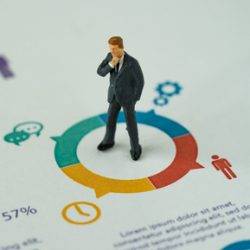April 11, 2018
Quarter of workers say job negatively affects their mental health and a third feel overworked

One in four workers (25 percent) feel their job negatively affects their mental health, while nearly a third (30 percent) say their workload is too high, according to a brand new report from the CIPD, the UK Working Lives survey. Although the survey found that two-thirds of workers (64 percent) were satisfied with their job overall, one in ten (11 percent) report regularly feeling miserable at work. More than a quarter (28 percent) of senior leaders say that they find it difficult to fulfil personal commitments because of their job, while over a quarter (27 percent) say that their job does not offer good opportunities to develop their skills, jumping to two in five (43 percent) among unskilled and casual workers. Focusing on the three main groups in the labour market, those at the lower levels are far less likely to have access to skills and training, those in middle management feeling significantly squeezed by their workload and those at the top find it difficult to maintain a work/life balance.








 The mental health of employees, especially those working within high pressured working environments are the number one concerns for UK CEOs. Nearly three quarters (73 percent) of respondents to the annual wellbeing report ‘
The mental health of employees, especially those working within high pressured working environments are the number one concerns for UK CEOs. Nearly three quarters (73 percent) of respondents to the annual wellbeing report ‘












 The biggest driver of a positive employee experience at work is ‘meaningful’ work, claims a new survey. According to the findings of the latest edition of ‘
The biggest driver of a positive employee experience at work is ‘meaningful’ work, claims a new survey. According to the findings of the latest edition of ‘
 British workers are lagging behind employees from other countries when it comes to flexible working hours and benefits like extended leave, suggests new research. New independent research commissioned by travel specialists Opodo.co.uk compared Britain with other nations across Europe and the USA, which reveals that British companies are lagging behind other businesses when it comes to flexible working. Three-quarters of employees in the UK (75 percent) don’t believe they have a generous holiday allowance and 84 percent aren’t offered time back in lieu for days worked over the weekend. It’s of no surprise then that 69 percent of Brits don’t think they have a good work-life balance.
British workers are lagging behind employees from other countries when it comes to flexible working hours and benefits like extended leave, suggests new research. New independent research commissioned by travel specialists Opodo.co.uk compared Britain with other nations across Europe and the USA, which reveals that British companies are lagging behind other businesses when it comes to flexible working. Three-quarters of employees in the UK (75 percent) don’t believe they have a generous holiday allowance and 84 percent aren’t offered time back in lieu for days worked over the weekend. It’s of no surprise then that 69 percent of Brits don’t think they have a good work-life balance.









October 25, 2017
Frederick Taylor was a man of his time not a whipping boy for ours
by Mark Eltringham • Comment, News, Workplace, Workplace design
More →